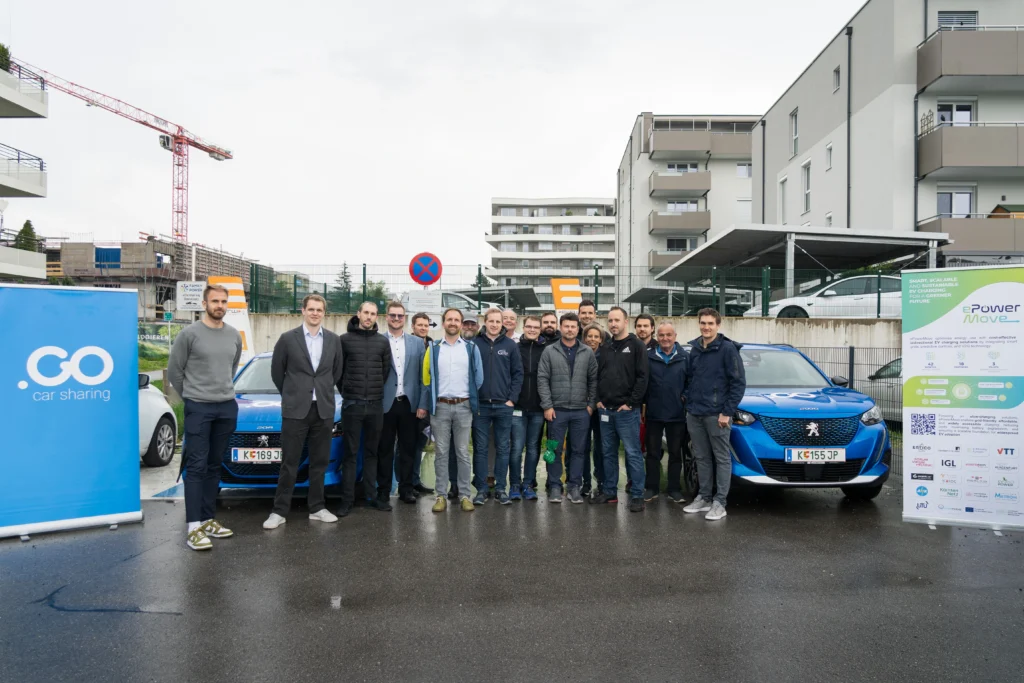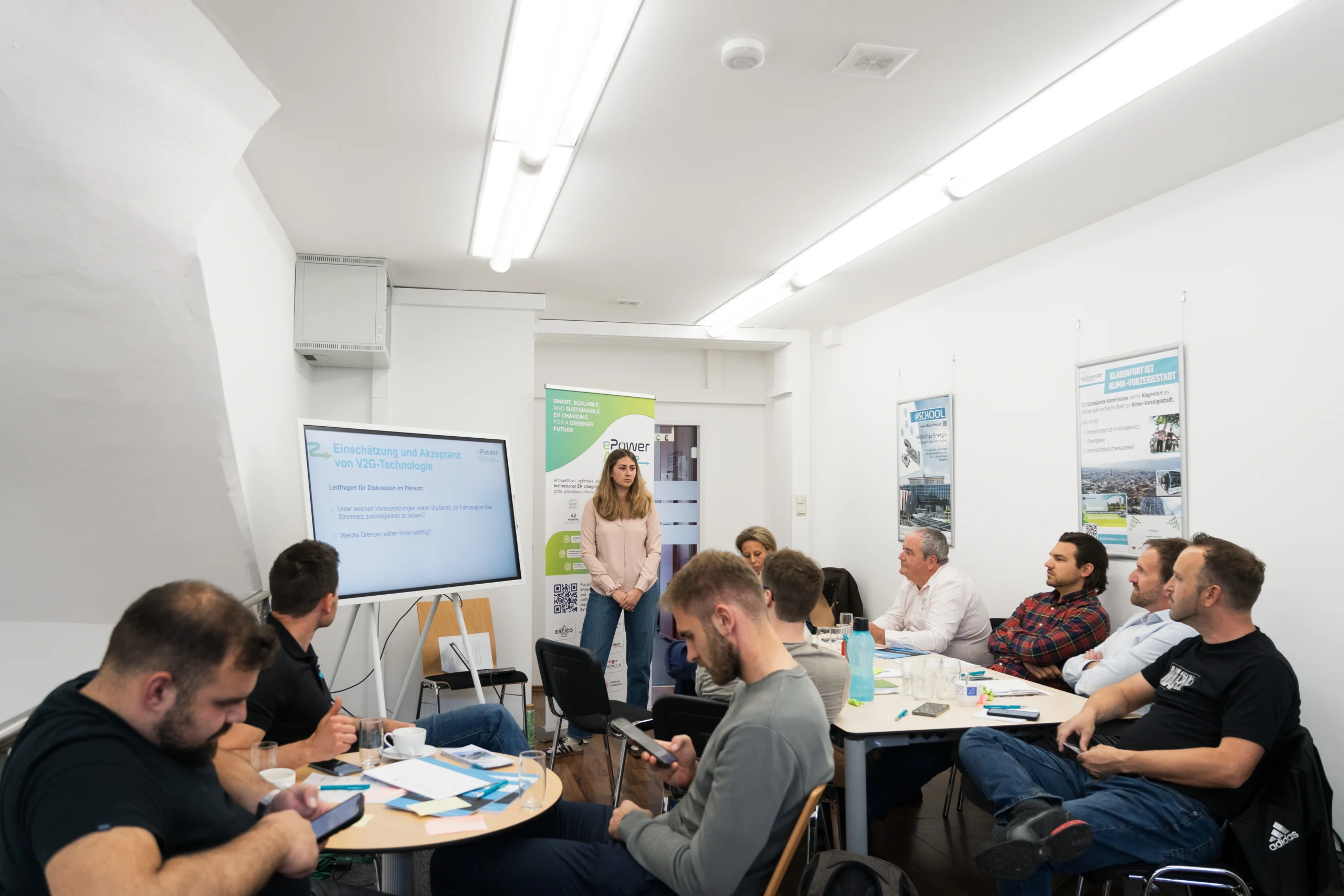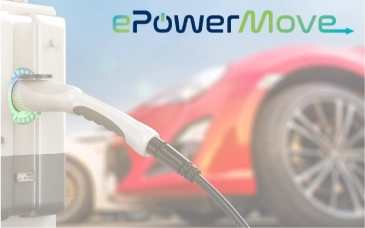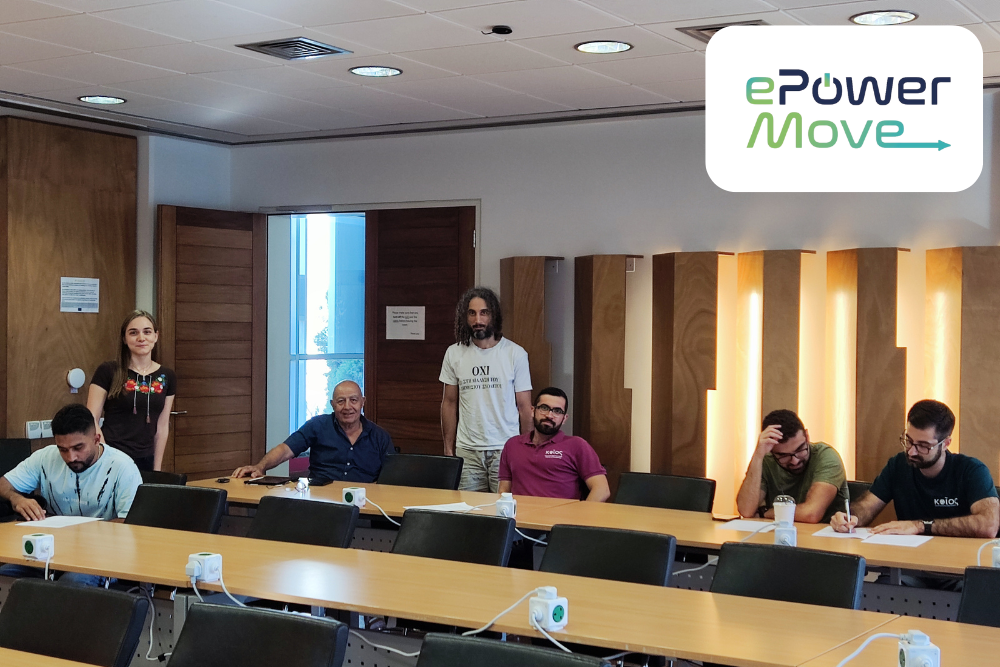Led by AustriaTech, the workshop brought together local stakeholders, users, and project partners to collaboratively shape the future of smart EV charging. The day began with an on-site visit to the Park & Ride Klagenfurt West / Minimundus, where the new charging stations will be installed. Participants were welcomed by Dominik Schallauer (AustriaTech), who introduced the ePowerMove project, followed by Markus Letter (City of Klagenfurt), who provided insights into the location and its significance as a multimodal mobility hub. Nejc Šter (Metron) shared initial design concepts for the charging stations, sparking discussion and interest among attendees.
The workshop continued at the Smart Climate Lab in Klagenfurt, where Lena Schwarz (AustriaTech) facilitated a participatory session focused on user experiences and expectations. Participants shared stories about their past charging habits and actively brainstormed ideas to ensure that the new infrastructure meets real-world needs. Topics such as car-sharing integration and Vehicle-to-Grid (V2G) functionality were explored in depth, particularly relevant to the site’s role in supporting shared mobility and energy efficiency.

For those unable to attend in person, a follow-up online workshop (in German) will be held on 6 May, ensuring wider community participation and feedback.
The co-design approach is central to ePowerMove’s philosophy. By involving diverse community clusters in the planning and design process through site visits, focus groups, workshops, and participatory design sessions, the project seeks to enhance user acceptability and empower individuals to shape their charging experience. The aim is to ensure charging is not just technically efficient, but also intuitive, accessible, and people-friendly.
The Klagenfurt event is just the beginning. The project’s other pilot sites are also gearing up for their own participatory activities. In Helsinki, VTT is preparing a design competition to explore innovative user-centric solutions for smart urban charging. In Nicosia, co-design sessions will soon engage the university campus community in developing infrastructure aligned with local needs and renewable energy integration.
Together, these activities underscore ePowerMove’s commitment to delivering charging solutions that are usable, accepted, and ready to scale across Europe, contributing to a more sustainable and inclusive e-mobility transition.


